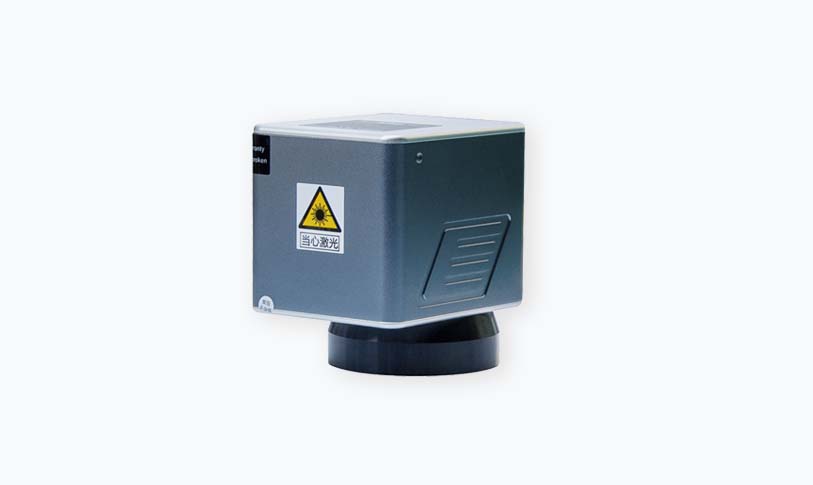****
In recent years, the industrial sector has witnessed significant advancements in technology that have revolutionized traditional manufacturing processes. At the forefront of these advancements is the industrial fiber laser, a powerful tool that combines precision, efficiency, and versatility. This article explores the many benefits and applications of industrial fiber lasers, highlighting their transformative impact on various industries.
Understanding Industrial Fiber Lasers

Exploring the Advantages and Applications of Industrial Fiber Lasers: Revolutionizing Manufacturing and Material Processing Industries
Industrial fiber lasers are a type of laser that uses optically pumped fiber as the gain medium. Unlike traditional laser systems, which rely on larger and bulkier components, fiber lasers are compact, efficient, and offer superior beam quality. This technology relies on the principle of stimulated emission and the unique properties of fiber optics, allowing for the generation of a highly concentrated and focused laser beam.
The advantages of industrial fiber lasers over their counterparts, such as CO2 lasers and solid-state lasers, are numerous. They feature higher electrical efficiency, longer operational lifespans, and less maintenance due to their solid-state design, which minimizes the use of moving parts. Additionally, fiber lasers can produce a variety of wavelengths, allowing for improved material interaction and versatility in applications.

Exploring the Advantages and Applications of Industrial Fiber Lasers: Revolutionizing Manufacturing and Material Processing Industries
Key Advantages of Industrial Fiber Lasers
1. **Precision and Quality**: One of the most significant advantages of industrial fiber lasers is their ability to deliver high-quality cuts and engravings with exceptional precision. The focused beam can achieve tight tolerance levels, making it suitable for intricate designs and applications in industries such as aerospace, automotive, and electronics.
2. **Speed and Efficiency**: Industrial fiber lasers operate at high speeds, enabling rapid processing of materials. This speed translates into increased productivity, allowing manufacturers to complete projects in a fraction of the time it would take with traditional methods. The efficiency of fiber lasers also reduces energy consumption, leading to cost savings for businesses.

Exploring the Advantages and Applications of Industrial Fiber Lasers: Revolutionizing Manufacturing and Material Processing Industries
3. **Versatility Across Materials**: Fiber lasers can process a wide range of materials, including metals, plastics, wood, and glass. This versatility makes them ideal for various applications, from cutting and welding to marking and engraving. The ability to work with different materials without the need for additional setup changes streamlines operations and reduces complexity in manufacturing environments.
4. **Minimal Heat Affected Zone**: Due to their high beam quality and focused energy, industrial fiber lasers produce minimal heat affected zones (HAZ). This characteristic results in less thermal distortion of the material, preserving its structural integrity and aesthetic quality, which is particularly advantageous in delicate applications.
5. **Low Maintenance and Longevity**: The solid-state nature of fiber lasers means they have fewer mechanical components that require maintenance, increasing their longevity and reliability. Businesses benefit from reduced downtime and lower operational costs associated with laser maintenance.
Applications of Industrial Fiber Lasers
Industrial fiber lasers have found widespread applications across various sectors:
– **Metal Fabrication**: In metalworking, fiber lasers are used for cutting, engraving, and welding with unparalleled precision. Their ability to work with thick metals efficiently has made them a valuable asset in manufacturing high-strength components.
– **Automotive Industry**: The automotive sector employs fiber lasers for cutting, welding, and surface treatment processes. Their speed and accuracy facilitate the manufacturing of complex automotive parts and assemblies.
– **Aerospace**: Precision is paramount in the aerospace industry, where fiber lasers are used to fabricate lightweight components and perform intricate welds on aircraft structures.
– **Medical Devices**: Fiber lasers play a crucial role in the production of medical devices, allowing for the precise cutting and marking of components utilized in surgical instruments and implants.
– **Signage and Decorative Applications**: The engraving capabilities of fiber lasers make them ideal for creating detailed signage and decorative products, offering businesses unique branding opportunities.
Conclusion
The industrial fiber laser represents a significant leap in manufacturing technology, offering a combination of speed, precision, and versatility that traditional methods cannot match. As industries continue to evolve and seek out innovative solutions to enhance productivity and quality, fiber lasers will undoubtedly play a central role in shaping the future of manufacturing and material processing. The ongoing development and refinement of this technology promise even more advancements, ensuring that industrial fiber lasers remain at the cutting edge of industrial innovation for years to come.laser controller



